Made This Beauty To Serve For Tomorrow. Absolutely Delicious. My Mom Loves The Dark Ganache Icing And

Made this beauty to serve for tomorrow. Absolutely delicious. My mom loves the dark ganache icing and I love the apricot jam between he layers.
I did something different from the recipe and I think it turned out better. There are other alterations I'd like to make and will add to the recipe as a separate way to prepare this.

What I did differently...
The things I did differently in my first bake was. I divided the sugar between the cake and the icing. That way the icing isn't so bitter. I did not use all the apricot jam, more like 2/3 of it (same with the icing). I also toasted about 112g of hazelnuts and chopped them for the decoration. Toasting the hazelnuts gives a deeper flavor.
More Posts from Quandrixing and Others
never forget your roots
fanfiction.net before they removed the NC-17 stories
going to fanfiction.net at all
going to adultfanfiction.net in the fallout of the great “purge”
figuring out that ain’t nobody actually monitoring NC-17 stories there anyway so just rate it “M”
“please R&R! concrit appreciated!”
warning: lemon
though it may be more on the limey side of lemon
“summary sux just read it”
replying to reviews in the author’s notes
author’s notes in which the characters talk to each other and the author
Show, don’t tell
"Show, don’t tell" means letting readers experience a story through actions, senses, and dialogue instead of outright explaining things. Here are some practical tips to achieve that:
1. Use Sensory Details
Tell: "The room was cold."
Show: "Her breath puffed in faint clouds, and she shivered as frost clung to the edges of the window."
Tell: "He was scared."
Show: "His hands trembled, and his heart thudded so loudly he was sure they could hear it too."
2. Focus on Actions
Tell: "She was angry."
Show: "She slammed the mug onto the counter, coffee sloshing over the rim as her jaw clenched."
Tell: "He was exhausted."
Show: "He stumbled through the door, collapsing onto the couch without even bothering to remove his shoes."
3. Use Dialogue
What characters say and how they say it can reveal their emotions, intentions, or traits.
Tell: "She was worried about the storm."
Show: "Do you think it'll reach us?" she asked, her voice tight, her fingers twisting the hem of her shirt.
4. Show Internal Conflict Through Thoughts or Reactions
Tell: "He was jealous of his friend."
Show: "As his friend held up the trophy, he forced a smile, swallowing the bitter lump rising in his throat."
5. Describe the Environment to Reflect Mood
Use the setting to mirror or hint at emotions or themes.
Tell: "The town was eerie."
Show: "Empty streets stretched into the mist, and the only sound was the faint creak of a weathered sign swinging in the wind."
6. Let Readers Infer Through Context
Give enough clues for the reader to piece things together without spelling it out.
Tell: "The man was a thief."
Show: "He moved through the crowd, fingers brushing pockets, his hand darting away with a glint of gold."
7. Use Subtext in Interactions
What’s left unsaid can reveal as much as what’s spoken.
Tell: "They were uncomfortable around each other."
Show: "He avoided her eyes, pretending to study the painting on the wall. She smoothed her dress for the third time, her fingers fumbling with the hem."
8. Compare to Relatable Experiences
Use metaphors, similes, or comparisons to make an emotion or situation vivid.
Tell: "The mountain was huge."
Show: "The mountain loomed above them, its peak disappearing into the clouds, as if it pierced the heavens."
Practice Example:
Tell: "The village had been destroyed by the fire."
Show: "Charred beams jutted from the rubble like broken ribs, the acrid smell of ash lingering in the air. A child's shoe lay half-buried in the soot, its leather curled from the heat."
“my bonnie lies over the ocean, my bonnie lies over the sea,”
are we talking about the same body of water here, which is weird, or different bodies of water, which is even weirder
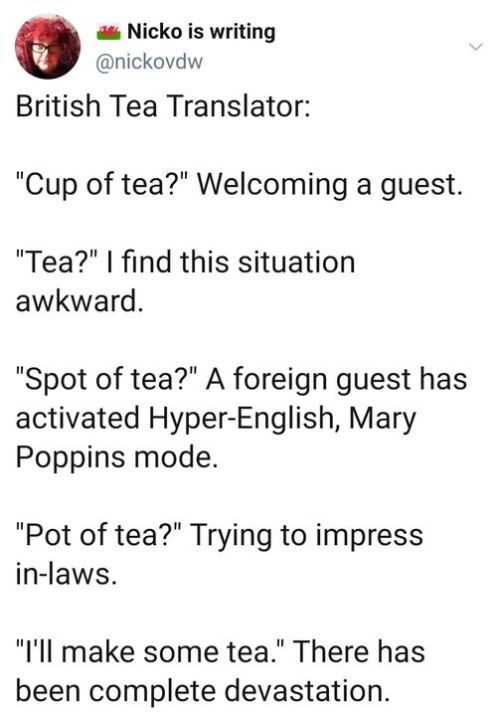



September 2024 PSA:
USA folks, you can order more free covid tests!

Also I've said this before but advertising is an industry that should be considered as pointless and harmful as fossil fuels.
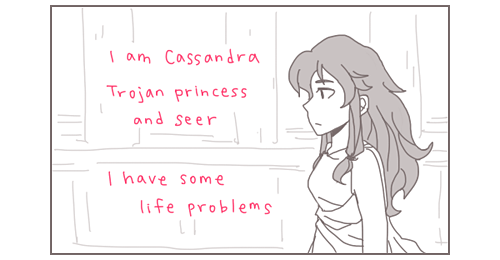
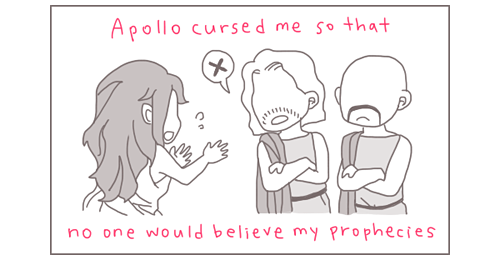
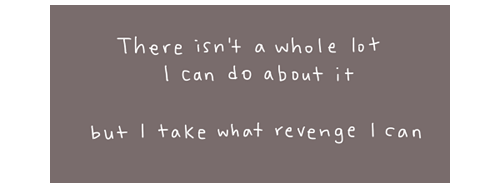
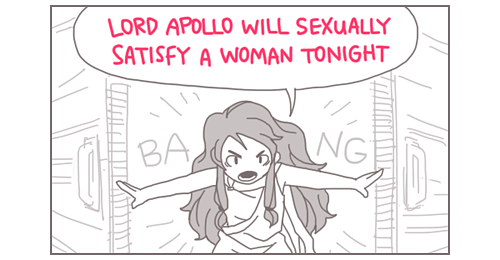
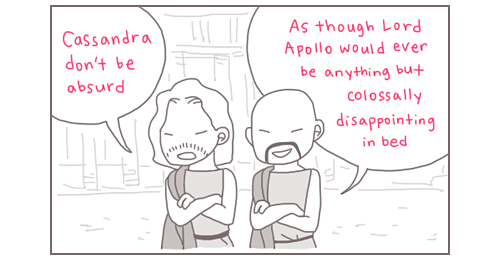

Hit him where it hurts, Cassandra! (Apollo is the WORST.)
i know vitamin c basically neutralizes adhd meds but lemonade good
-
 mechgarfield reblogged this · 6 months ago
mechgarfield reblogged this · 6 months ago -
 housesghastlymenhaunted liked this · 6 months ago
housesghastlymenhaunted liked this · 6 months ago -
 glitchlenscerebral liked this · 6 months ago
glitchlenscerebral liked this · 6 months ago -
 sinistassin liked this · 6 months ago
sinistassin liked this · 6 months ago -
 sparklepath liked this · 6 months ago
sparklepath liked this · 6 months ago -
 kyrie-ruth liked this · 6 months ago
kyrie-ruth liked this · 6 months ago -
 mortiche-the-mortalitasi reblogged this · 6 months ago
mortiche-the-mortalitasi reblogged this · 6 months ago -
 funkygothbunny liked this · 6 months ago
funkygothbunny liked this · 6 months ago -
 cinnamontoasten liked this · 6 months ago
cinnamontoasten liked this · 6 months ago -
 2-hoseoks liked this · 6 months ago
2-hoseoks liked this · 6 months ago -
 sun-the-shattered liked this · 6 months ago
sun-the-shattered liked this · 6 months ago -
 shin-koki reblogged this · 6 months ago
shin-koki reblogged this · 6 months ago -
 schneeflocke-m liked this · 6 months ago
schneeflocke-m liked this · 6 months ago -
 atreides reblogged this · 6 months ago
atreides reblogged this · 6 months ago -
 loki-ren liked this · 6 months ago
loki-ren liked this · 6 months ago -
 indiscreettransexual liked this · 6 months ago
indiscreettransexual liked this · 6 months ago -
 no-perceivey liked this · 6 months ago
no-perceivey liked this · 6 months ago -
 salattiamies liked this · 6 months ago
salattiamies liked this · 6 months ago -
 abstractlyrealistic1 liked this · 6 months ago
abstractlyrealistic1 liked this · 6 months ago -
 pizzopaps liked this · 6 months ago
pizzopaps liked this · 6 months ago -
 ladystoneheart-76 liked this · 6 months ago
ladystoneheart-76 liked this · 6 months ago -
 norsechaos liked this · 6 months ago
norsechaos liked this · 6 months ago -
 camp-mithril-lake reblogged this · 6 months ago
camp-mithril-lake reblogged this · 6 months ago -
 shin-koki reblogged this · 6 months ago
shin-koki reblogged this · 6 months ago -
 shin-koki liked this · 6 months ago
shin-koki liked this · 6 months ago -
 sinelaborenihilsr2 liked this · 6 months ago
sinelaborenihilsr2 liked this · 6 months ago -
 moths-in-a-sweater liked this · 6 months ago
moths-in-a-sweater liked this · 6 months ago -
 kcwriter-blog liked this · 6 months ago
kcwriter-blog liked this · 6 months ago -
 thepalehorsevictoria liked this · 6 months ago
thepalehorsevictoria liked this · 6 months ago -
 severusminerva liked this · 6 months ago
severusminerva liked this · 6 months ago -
 alleycatinks liked this · 6 months ago
alleycatinks liked this · 6 months ago -
 a-little-fall-of-rain91 liked this · 6 months ago
a-little-fall-of-rain91 liked this · 6 months ago -
 trickster-in-training liked this · 6 months ago
trickster-in-training liked this · 6 months ago -
 racheloleo liked this · 6 months ago
racheloleo liked this · 6 months ago -
 tomboy-disaster liked this · 6 months ago
tomboy-disaster liked this · 6 months ago -
 catacombsandceramics liked this · 6 months ago
catacombsandceramics liked this · 6 months ago -
 magiksmoothy liked this · 6 months ago
magiksmoothy liked this · 6 months ago -
 the-strange-unknown liked this · 6 months ago
the-strange-unknown liked this · 6 months ago -
 my-queen-rhaenyra-targaryen reblogged this · 6 months ago
my-queen-rhaenyra-targaryen reblogged this · 6 months ago -
 my-queen-rhaenyra-targaryen liked this · 6 months ago
my-queen-rhaenyra-targaryen liked this · 6 months ago -
 darkenedlittlecorner liked this · 6 months ago
darkenedlittlecorner liked this · 6 months ago -
 jackillr liked this · 6 months ago
jackillr liked this · 6 months ago -
 bigbodyofwater liked this · 6 months ago
bigbodyofwater liked this · 6 months ago -
 tenaciousvoidcat liked this · 6 months ago
tenaciousvoidcat liked this · 6 months ago -
 stressedandwelldresseed liked this · 6 months ago
stressedandwelldresseed liked this · 6 months ago -
 cannibalisticskittles liked this · 6 months ago
cannibalisticskittles liked this · 6 months ago -
 turbo-virgins reblogged this · 6 months ago
turbo-virgins reblogged this · 6 months ago -
 cadmus-project liked this · 6 months ago
cadmus-project liked this · 6 months ago

